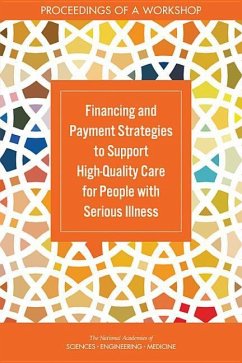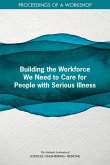"Millions of people in the United States live with serious illnesses such as cancer, heart disease, chronic obstructive pulmonary disorder (COPD), amyotrophic lateral sclerosis, Parkinson's disease, and dementia--often for many years. Those facing serious illness have a range of interconnected medical and non-medical needs, and the way their care is financed has a large impact on the care they receive. Medicare is the predominant payer, but both Medicaid and private payers also play significant roles in financing care for serious illness. In an effort to address the complex needs of people with serious illness, public and private health care payers are testing innovative financing strategies and alternative payment models. These innovative approaches signal a gradual transition from the traditional-fee-for-service system that pays providers based on the quantity of services to a system based on the value of care provided and a heightened focus on improved quality of care at lower cost. To explore this evolving financing and payment landscape for serious illness care within public- and private-sector programs, the Roundtable on Quality Care for People with Serious Illness developed a workshop, Financing and Payment Strategies to Support High-Quality Care for People with Serious Illness. The workshop convened clinicians, researchers, policy analysts, and patient advocates, as well as representatives from academia, government and private health care plans, and insurers to discuss challenges and opportunities in financing high-quality care for people with serious illness. This publication summarizes the presentations and discussions from the workshop"--
Hinweis: Dieser Artikel kann nur an eine deutsche Lieferadresse ausgeliefert werden.
Hinweis: Dieser Artikel kann nur an eine deutsche Lieferadresse ausgeliefert werden.








